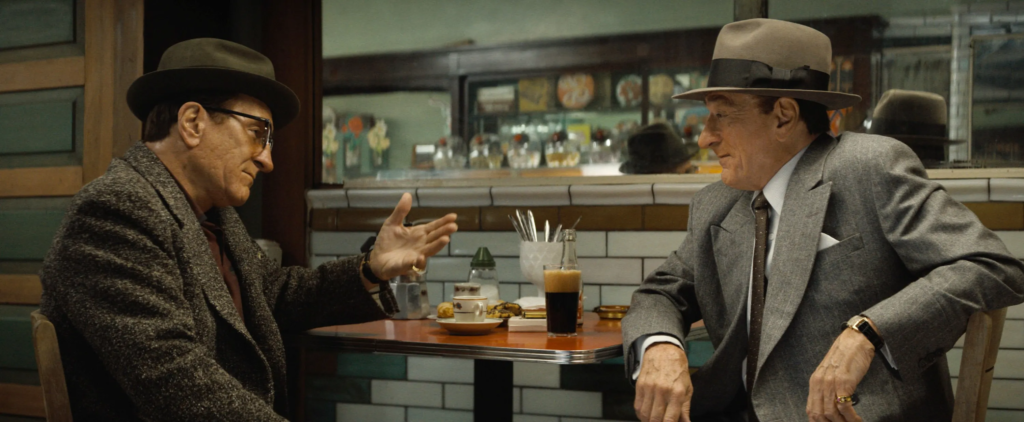The Alto Knights attempts to revisit the golden era of mob films, but the execution leaves much to be desired. While the concept of Robert De Niro playing dual roles as legendary mobsters Frank Costello and Vito Genovese is intriguing, the film stumbles under the weight of its ambitions.
Directed by Barry Levinson (Rain Man, Bugsy) and penned by Nicholas Pileggi (Goodfellas, Casino), the film aims for epic grandeur but ends up feeling like a drawn-out history lesson. The drama revolves around the once-close friendship of Costello and Genovese unraveling through betrayals, paranoia, and ambition. However, critics noted that the story relies heavily on tropes we’ve seen countless times in better mob films, offering little fresh insight into the genre.
De Niro’s performance is competent but lacks the emotional dynamism necessary to distinguish the two characters meaningfully. The supporting cast—including Debra Messing and Kathrine Narducci—bring energy to otherwise repetitive scenes, and the period details (from wardrobe to set design) are immaculate. Still, the film’s static visual style and underwhelming narrative arc hinder its impact.

Critics like Robert Daniels (RogerEbert.com) pointed out that despite the film’s nostalgic appeal and moments of sharp dialogue, it often feels like a “tired retread” rather than a bold reimagining of the mob movie canon. Rotten Tomatoes shows a mixed critical response—around 40%—while audiences were slightly more favorable, citing its old-school charm despite the lack of innovation
